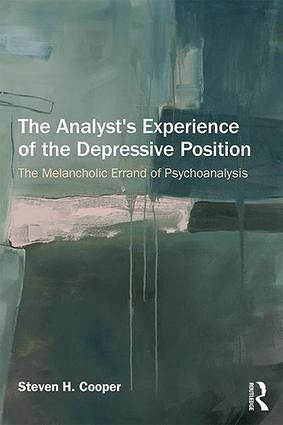
The Analyst's Experience of the Depressive Position
The melancholic errand of psychoanalysis
Versandkostenfrei!
Versandfertig in 1-2 Wochen
204,99 €
inkl. MwSt.
Weitere Ausgaben:

PAYBACK Punkte
102 °P sammeln!
The Analyst's Experience of the Depressive Position: The Melancholic Errand of Psychoanalysisexplores a subject matter previously applied more exclusively to patients, but rarely to psychoanalysts. Cooper probes the analyst's experience of the depressive position in the analytic situation.













